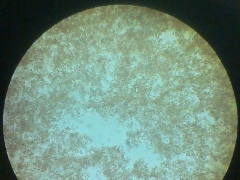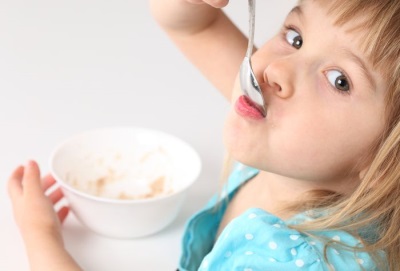Urate in the urine of a child
Changes in the urine samples of children are not always associated with diseases. For example, salts detected in the urine may indicate only changes in the nutrition of the child. However, it happens that the analysis indicators help to identify quite serious pathologies. Are salts such as urates dangerous, and why can they appear in the urine of a child?
What is it?
Urata is called one of the types of salts that are detected during a general urinalysis. Such salts are formed from uric acid, which is combined with potassium or sodium. They are usually detected in the urine with an acidic reaction.
Amorphous urates
So called unformed salts, giving the urine a pink-brown hue. Normally, this type of urats is determined in a single quantity. Excessive appearance of amorphous urates is possible with stagnant urine, glomerulonephritis, fever, or renal failure.
When to worry?
When urates are detected during reanalysis (including after changes in the nutrition of the child), and their number is marked with three or four pluses, this is an indication for a deeper examination of the baby.
Are there any additional symptoms of the disease?
In most cases, there are no clinical manifestations of urate secretions in the urine, and salts are determined only in the analysis. Suspicion can only change the color of urine.
If this kind of salt is so accumulated that it caused the formation of stones, then a child may develop a urinary tract infection or blockage.
With the excessive accumulation of urates in the urinary tract, the child may appear:
- Sleep disturbances;
- Hyperactivity and mobility;
- Accelerated development;
- Refusal to eat;
- Constipation;
- Reddish spots on the skin;
- Bouts of vomiting in the morning;
- Asthma attacks are possible.
Possible reasons
The most common factors that cause an increased release of urate in the urine of a child are:
- Nutritional changes (excess in the diet of meat, fish dishes, cheese, tea, tomato, chocolate).
- A recent illness with fever, vomiting or diarrhea.
- Poor blood supply to the kidneys.
- Insufficient intake of fluid in the child's body, as well as spending with excessive sweating, during vomiting or diarrhea.
- Taking medicine (usually antipyretic drugs or antibiotics).
- Infectious diseases of the urinary tract.
- Gout (at children's age appears extremely rare).
- Leukemia (some types).
- Hereditary propensity.
- Starvation.
- Worm infestation.
Treatment
The basis of the therapy of excessive removal of urate with pediatric urine is a diet. If the examination determined the presence of calculus, the doctor will prescribe medication.
The child will be prescribed depending on the clinical manifestations. anti-inflammatory facilities, diuretics drugs, analgesics. In some cases, it is necessary to resort to different methods of crushing stones.
Diet
The therapeutic diet prescribed for children with uraturia is number 6. In the diet of a child who has many urates in his urine should not be:
- Broths;
- Canned food;
- Offal;
- Fat varieties of fish and meat;
- Chocolate
Restrict the need to products such as:
- Lean fish;
- Spicy dishes;
- Salt and spices;
- Dishes from legumes;
- Onions, cabbage, spinach.
In the diet of a child with a high concentration of urates in the urine should be:
- Milk products;
- Pasta;
- Dishes from cereals;
- Rye and wheat bread;
- Vegetarian soups;
- Potatoes, cucumbers, sweet peppers, eggplants, pumpkin;
- Eggs;
- Pears, apples, citrus fruits, grapes, figs, gooseberries, bananas;
- Sweet dishes;
- Nuts;
- Dried apricots and other dried fruits;
- Jam, marmalade.
To accelerate the removal of salts from the body of the child will help to drink plenty of fluids. Give the child regular and mineral water, juices and fruit drinks.
If changes are detected in an infant, the diet should be followed by a nursing mother.
Possible complications
Prolonged release of a large number of urates is dangerous primarily due to the risk of stone formation and the development of gout. If the stones cause a blockage of the urinary tract, it can cause hydronephrosis, as well as pyelonephritis.
Large stones can damage urinary tract tissue, cause inflammation or bleeding. In severe cases, chronic kidney failure may develop.
Prevention
To prevent excessive salt formation in children's urine and the risk of kidney stones, care should be taken to balance the diet of the child, as well as adequate drinking regime.
It is also important to add regular physical exertion to the child’s life, reduce stress, and ensure a restful, full sleep.














